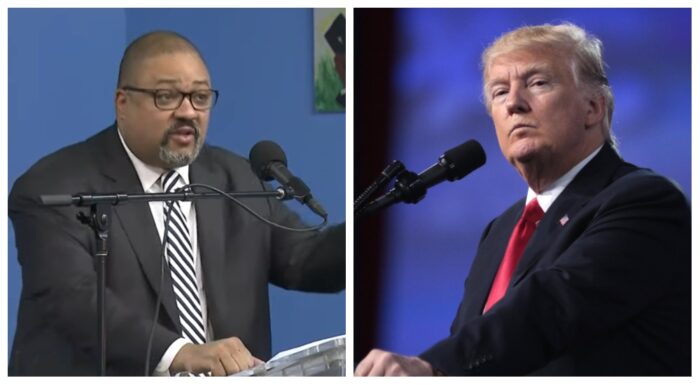Another legal expert believes there is significant evidence suggesting that former President Donald Trump’s hush money conviction could be overturned on appeal. David W. Fischer, a criminal defense attorney based in Maryland and D.C., argues online that the U.S. Supreme Court’s immunity ruling earlier this summer provides Trump’s attorneys with a strong basis for challenging the case brought by Manhattan District Attorney Alvin Bragg.
Fischer points out that the Democratic prosecutor recently chose not to oppose a delay in the sentencing hearing, indicating an awareness that the high court’s decision might impact the case Trump has long claimed is politically motivated. According to Fischer, Trump has a solid argument that his actions were protected as “official acts” while he was in office.
“The Supreme Court’s definition of what constitutes an ‘official act’ is broad. Even conduct in the ‘outer perimeter’ of the President’s duties is ‘presumptively immune’ and cannot be used in a trial ‘even on charges that purport to be based only on his unofficial conduct,'” Fischer explained. Bragg has predictably countered Trump’s argument to dismiss the conviction, asserting that the former candidate directed his attorney to make a six-figure payment to an adult film star to suppress rumors of a potential extramarital affair as a means of making an illegal contribution to his 2016 campaign.
“Bragg’s prosecutors, however, introduced substantial evidence at trial that clearly falls under the rubric of ‘official acts.’ (The alleged crime took place when Donald Trump was president.),” Fischer continued in an op-ed on reporter Julie Kelly’s Substack page. Among the evidence cited by Bragg is testimony from former Trump attorney Michael Cohen and then-aide Hope Hicks, which he argues demonstrates that the former president was driven by a purely “private purpose” in directing the payment. Fischer, however, notes that the Supreme Court has rejected this claim.
“Bragg’s main problem is that his prosecutors heavily emphasized official-acts evidence to the jury in the closing argument. In particular, prosecutors used immunized conversations from Hicks and others to bolster Cohen’s credibility, and even had Cohen testify about Trump allegedly offering pardons for nefarious purposes,” he writes. “These conversations are immunized because, as Chief Justice Roberts wrote in Trump v. United States, to allow them to be used against a former President would ‘pose [a danger] of intrusion on the authority and functions of the executive branch.’ To paraphrase the Chief Justice, an ‘official act’ is not a ‘private act’ just because a prosecutor characterizes it as such.”
Another contention raised by Trump’s attorneys is that Manhattan Judge Juan Merchan permitted Bragg to introduce “immunized testimony” from Hicks and Cohen, who had been promised immunity from prosecution in return for testifying against their former boss. It is widely believed that Bragg’s case, particularly due to Cohen’s admissions, would have been difficult to prove without their testimony. Cohen, a former convict previously found guilty of lying to Congress, is seen as especially pivotal. “By failing to rule on the admissibility of arguably official-acts evidence before trial, Judge Merchan likely committed reversible error,” Fischer suggested.
In the end, Trump will likely benefit from the extensive delays in his trial, according to Fischer. Some speculate that Bragg’s decision not to oppose a delay in sentencing is influenced by national Democrats, including Vice President Kamala Harris, who may prefer to avoid the spectacle of Trump being sentenced to jail time. This shift in the timeline means any resolution of the case will almost certainly be postponed until after the November election. “Assuming Trump is re-elected, the New York case will evaporate, either through the appellate or political process,” Fischer concluded.



